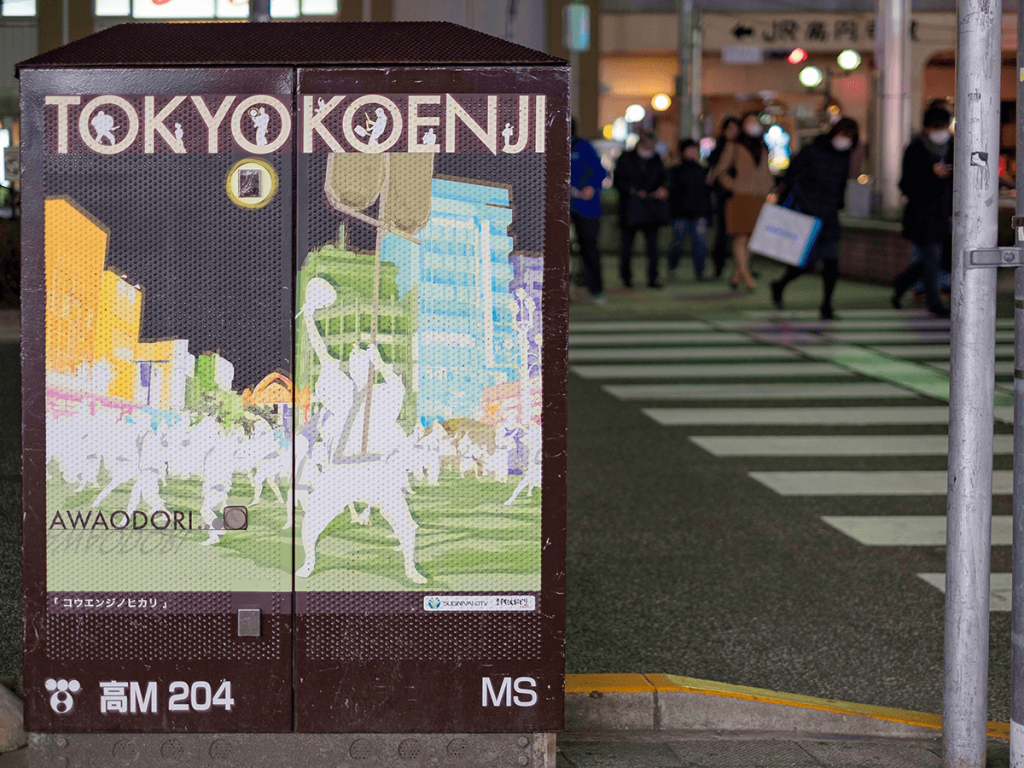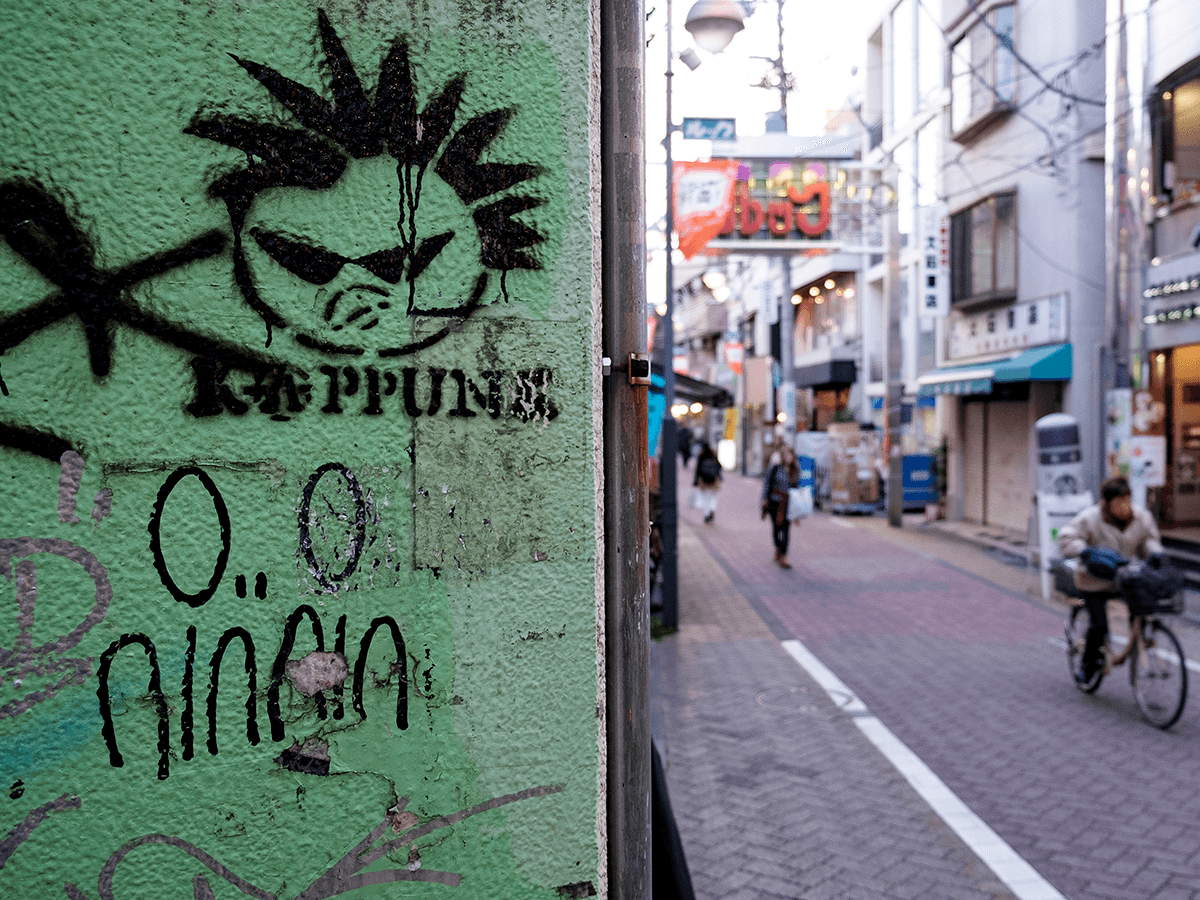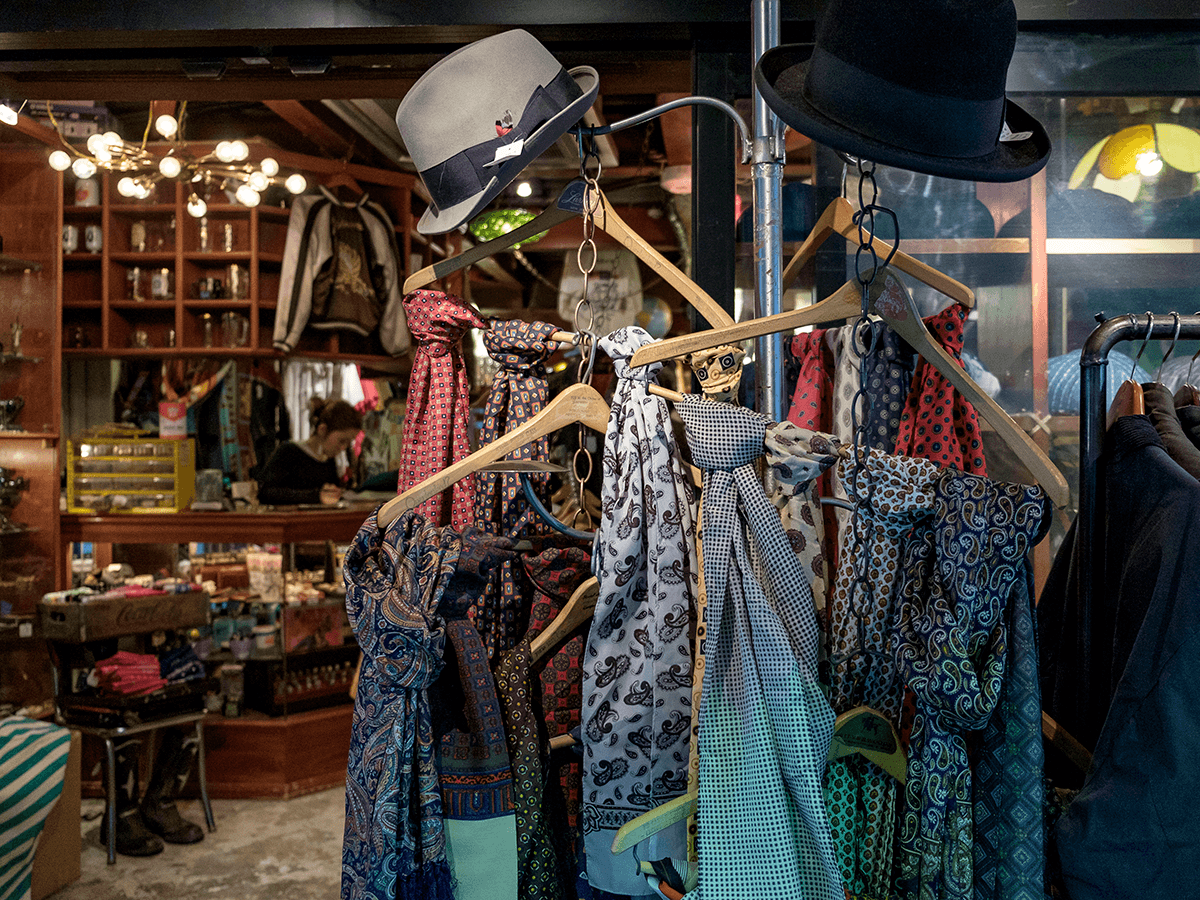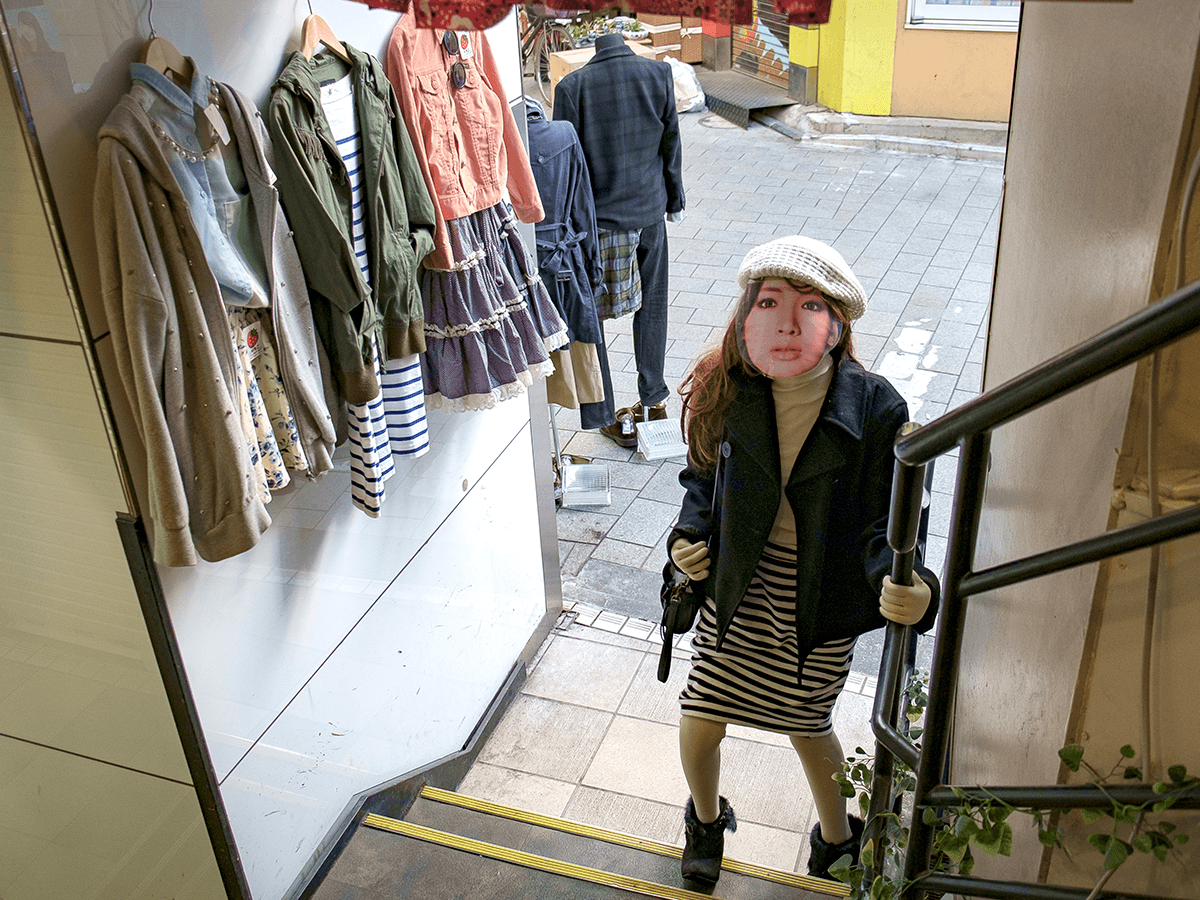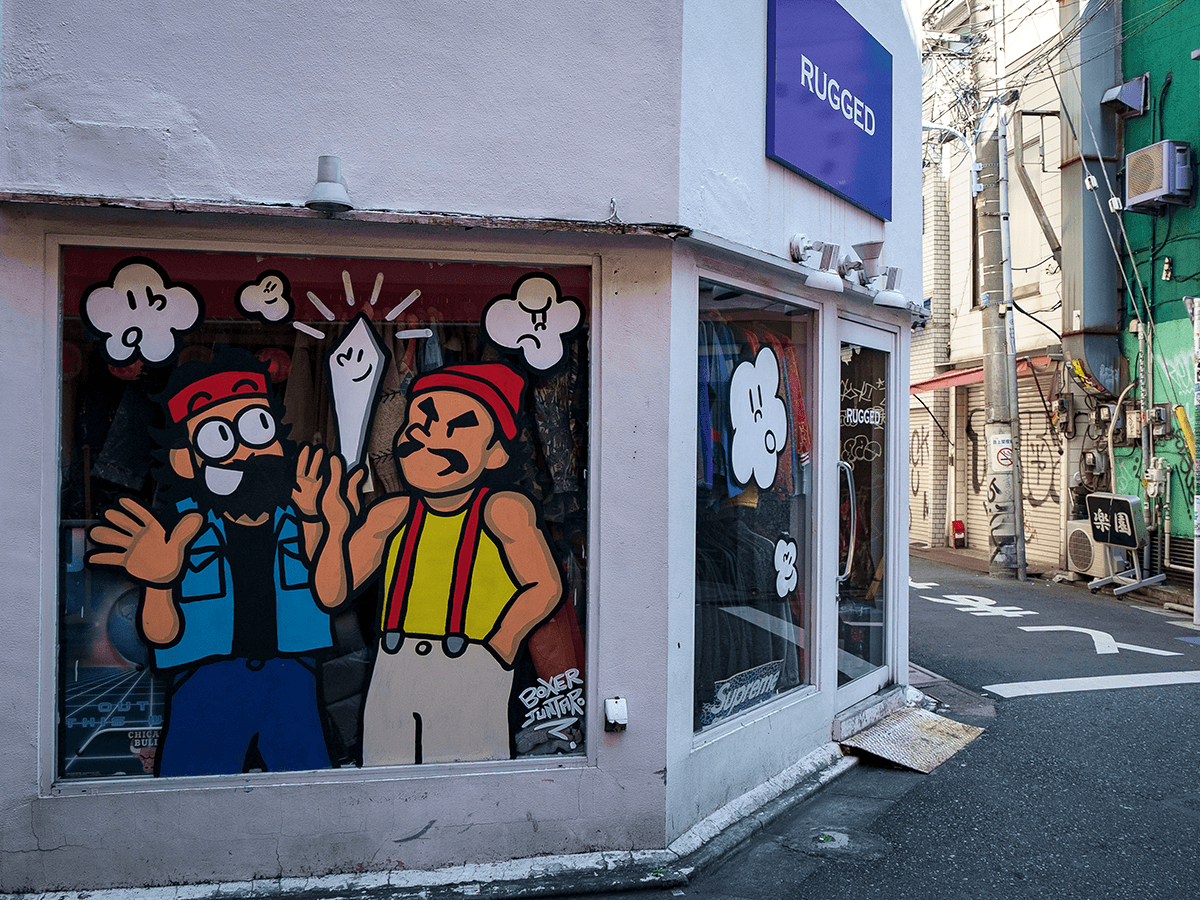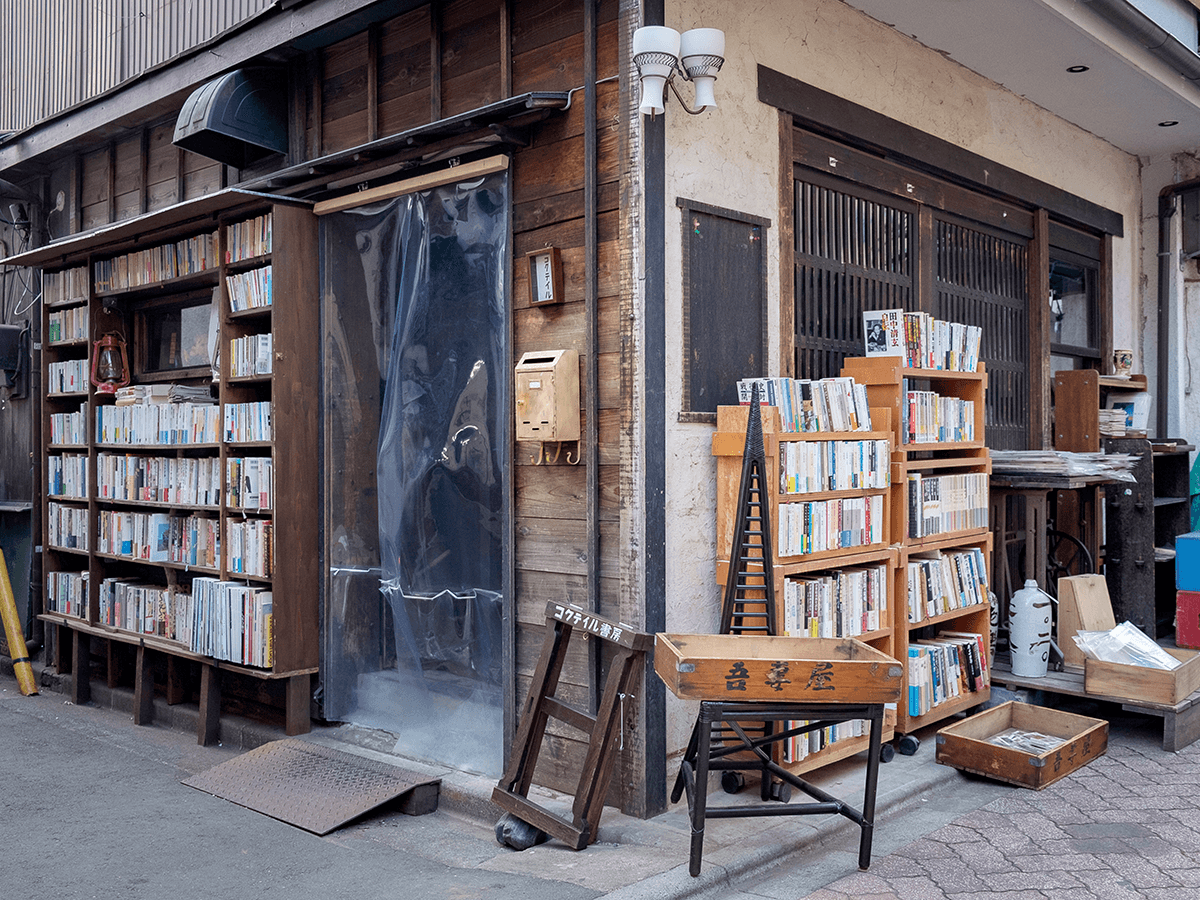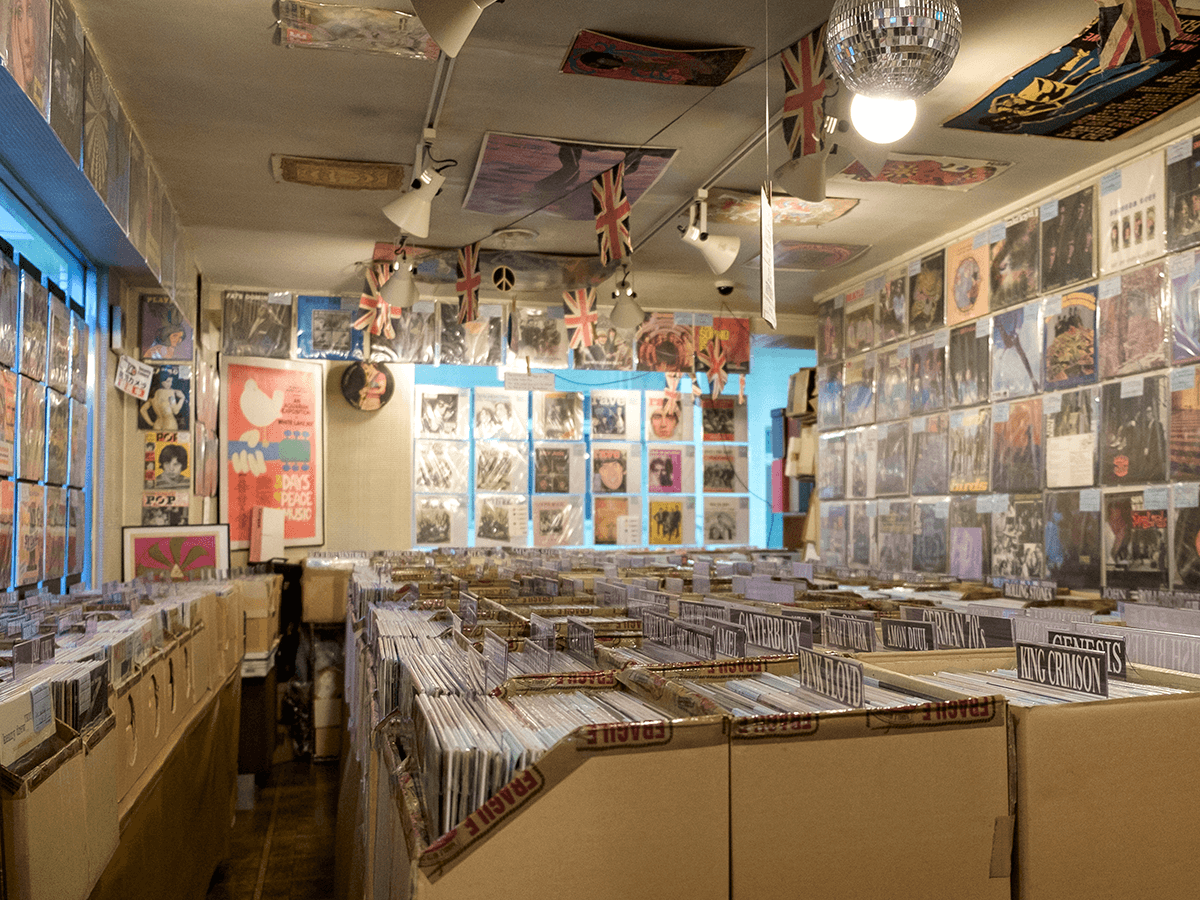This iconoclastic neighborhood found its free-spirited identity back in the 60s and 70s and has been trying to live up to it ever since.
Hippie Turned Punk
Known as a hotbed for activists, Koenji has been home to antiwar and antinuclear demonstrations for decades thanks to its liberal, bohemian constituency. Hippies put down their roots in the neighborhood as far back as the 60s, and later on in the 70s Koenji became ground zero for punk rock in Japan. To this day, many of Tokyo’s best concert venues are in the neighborhood, starting with mainstays 20,000 Den-atsu and UFO Club in Higashi-Koenji. Although those venues host a varied sampling of rock music these days, there are more specialized live houses around, like Penguin House for local talent, One Koenji for DJs and Muryoku Muzenji for experimental and noise.
Thrifting Along in Koenji
After Harajuku and Shimokitazawa, Koenji is your best bet for finding that perfect vintage piece to complete your outfit. There are dozens of boutiques specializing in different eras, styles and price ranges. For a pair of gently worn leather boots, check Whistler or Chart. Gasoline has more leather on hand for augmenting your biker wear. AiLeen and (capriciously named) Slut deal in classic Americana, while Jacob’s Ladder is stocked with European name brands. Hit up Hayatochiri for stylish domestic garb and Kirakuya for vintage kimonos. If you’ve got clothes to spare, you can sell them at one of many recycle shops like Don Don Down on Wednesday, Mode Off or Treasure Factory Style.
On the Menu
The food scene in Koenji is varied and goes beyond the usual Tokyo fare. Khana has excellent Indian/Nepalese food right on PAL street. SUBstore is the perfect trifecta of Indonesian restaurant/record store/music venue owned by a friendly couple. Binh Minh has great Vietnamese and as a plus, is open late. If you’re vegetarian, Meu Nota is the place for you. Of course, if you’re looking for standard Japanese food, you can also hit up Tensuke for tempura or the excellent yakitori joint Taisho, which has three branches around Koenji Station. Also give Dachibin a try for Okinawan food. For a drink and a book, Cocktail Shobo has both and doesn’t mind you using a coaster for a bookmark after you’ve had one too many.
Hip Shop Hooray
One of the highlights of Koenji is its shotengai, or commercial areas. The covered PAL arcade is the main shopping drag through Koenji, adjoining boutique-lined Look Street and nightlife-catering Nakadori Shotengai. The streets are filled with unique independent businesses and specialty shops. Nekonohitai, for example, deals in cat-themed merchandise and has an obligatory resident store kitty. Ehonya Rusubanbansuru Kaisha has picture books, many of which are from Eastern Europe. There’s no shortage of record stores selling mint, original pressing vinyl – check out EAD Record, Be-In Record and Universounds. If you’re looking for a cup of joe, or for some roasted beans to take home, look no further than Coffee Amp.
Just Dance at the Koenji Awa Odori Festival
By far, the biggest yearly event in Koenji is the Awa Odori Festival at the end of August. For two days starting on the last Saturday of the month, over 12,000 participants in nearly 200 groups take to the streets to dance accompanied by traditional instruments. This festival is a smaller-scale Awa Odori from Tokushima, and was brought to Koenji by Shikoku natives who had moved to Tokyo in the 1950s. More than a million spectators flock to it every year and it’s one of the most fun street events on Tokyo’s calendar. If you prefer to enjoy dance and the arts in a seated, indoor capacity, the Za-Koenji Public Theatre is a comfortable performing arts venue that is relatively new to the neighborhood.
Updated On April 26, 2018

